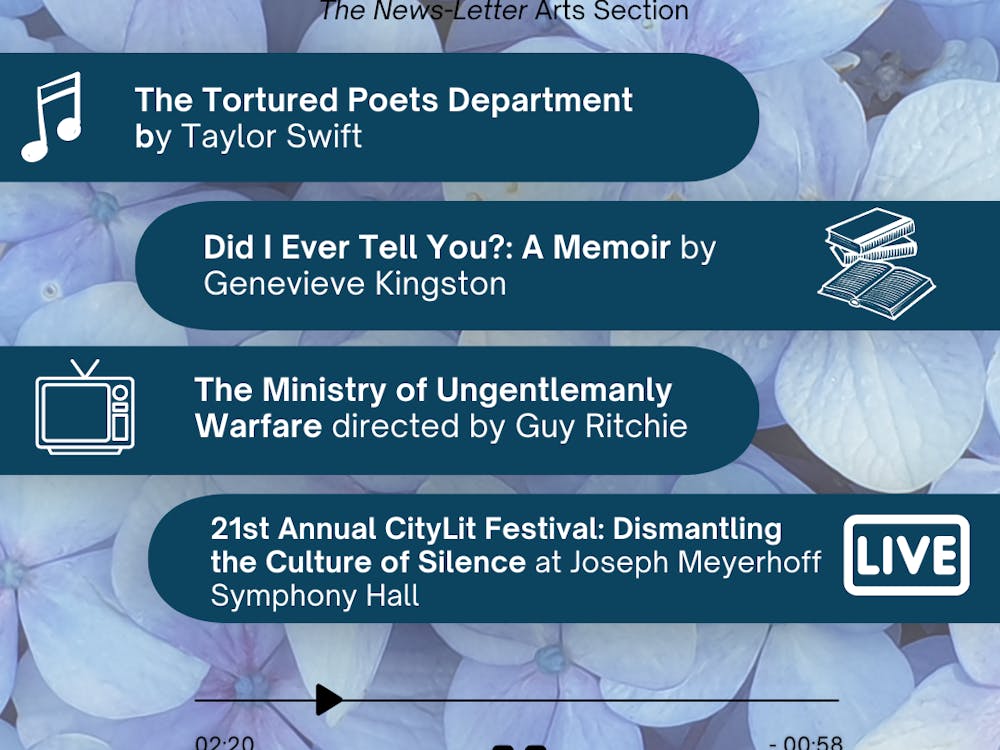Acclaimed literary critic Sir Christopher Ricks visited Hopkins to deliver the annual Turnbull Lecture on Tuesday entitled “T.S. Eliot and Matters of Principle,” regarding the importance of principle in both literature and life.
The Turnbull Lecture series began in the late 19th century, initiated by a prominent literary family in Baltimore and named in memory of Percy Graeme Turnbull (1878-1887). Academic interest in these literary events has continued the series since its foundation in March of 1891 with only a few interruptions.
Hopkins has hosted a number of esteemed literary figures, including T.S. Eliot, the subject of Ricks’ recent lecture, in 1933.
Ricks focused on Eliot’s work because the Johns Hopkins University Press recently published The Poems of T.S. Eliot in two volumes. As well as editing the collection, Ricks significantly expanded upon Eliot’s work with critical commentary and was awarded The Poetry Foundation’s Pegasus Award for criticism.
Sir Andrew Motion, Homewood Professor of the Arts, said that the collection is especially important because, before its publication, “the greatest English language poet of the 20th century did not have a proper edition of his work,” and Ricks has “put right a significant wrong in literature.”
Though Ricks discussed some of the specific mechanics of Eliot’s poetry, the crux of the lecture regarded the importance of principle, which Ricks juxtaposed with philosophy, a discipline he described as ‘tactless.’ Tact, he explained, is important to authors and critics because it protects the words of the author from misinterpretation.
Ricks has built his career around emphasizing principle in his criticism, but his message received some resistance from members of the audience who challenged his perspective on philosophy. He clarified that great works of literature bring discordant qualities into balance with many dimensions of comprehension. Tact, or attention to word choice, allows great authors to successfully bring these many understandings together according to him.
In a conversation with The News-Letter after the lecture, Ricks elaborated on the importance of tact.
“I try to teach students to be honest, including honest in their use of language,” he said. “I’ve objected to the failure of these standards when you get a letter from the administration, because it comes up with forms of words which are not really honest.”
Ricks referred to his ongoing legal battle with Boston University, where he teaches, to emphasize his point that administrations often dictate language in a dishonest manner to suit their purposes.
“I just published a great long article which quotes things that have been written and said by the dean and the president,” he said. “It had to be ‘legalled,’ as they say.”
Though Ricks did not elaborate on the contents of the article, his struggle with the administration of Boston University exemplifies the real-life applications of the principles he teaches.
“One of the ways in which people cheat is sometimes by leaving out a very important consideration which will change the whole picture,” Ricks said.
Ricks’ efforts to teach his students the importance of honesty is hardly out of place at Hopkins, the motto of which is Veritas vos Liberabit, or, ‘The truth will set you free.’ Ricks commented on this alignment between his ideas and the message of the University.
“Artists are interested in inspiration,” he said. “Hopkins was interested in the critical way in which you would try to explain to somebody why a piece doesn’t seem to be inspired.”
As a literary critic, he has adopted the University’s sentiment, searching for honesty, or ‘tact,’ as he has come to call it, in works of literature. This principle has also become the foundation of his teaching.
There can be no doubt that Sir Christopher Ricks’ critical skill is well developed, but what distinguishes his criticism is his unique approach grounded in principles of honesty.






















Please note All comments are eligible for publication in The News-Letter.